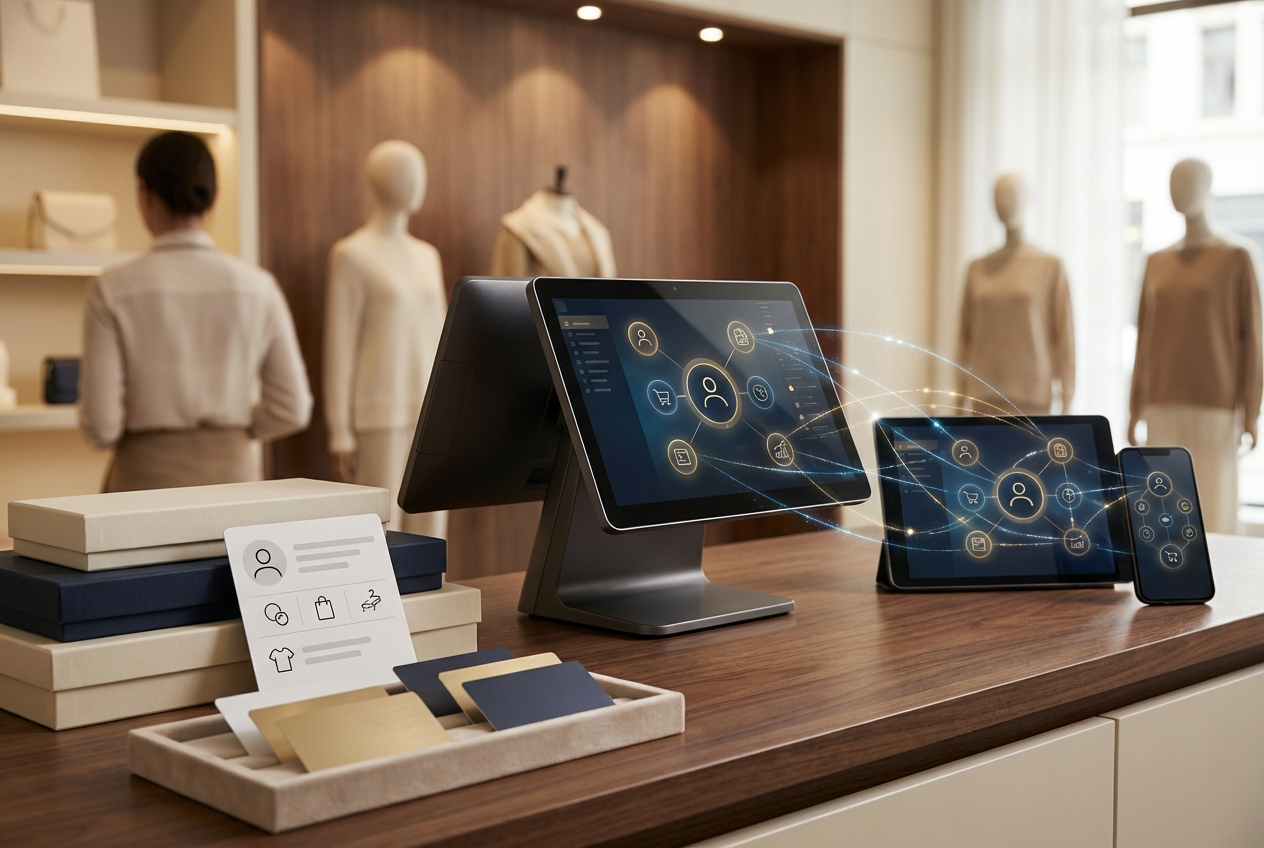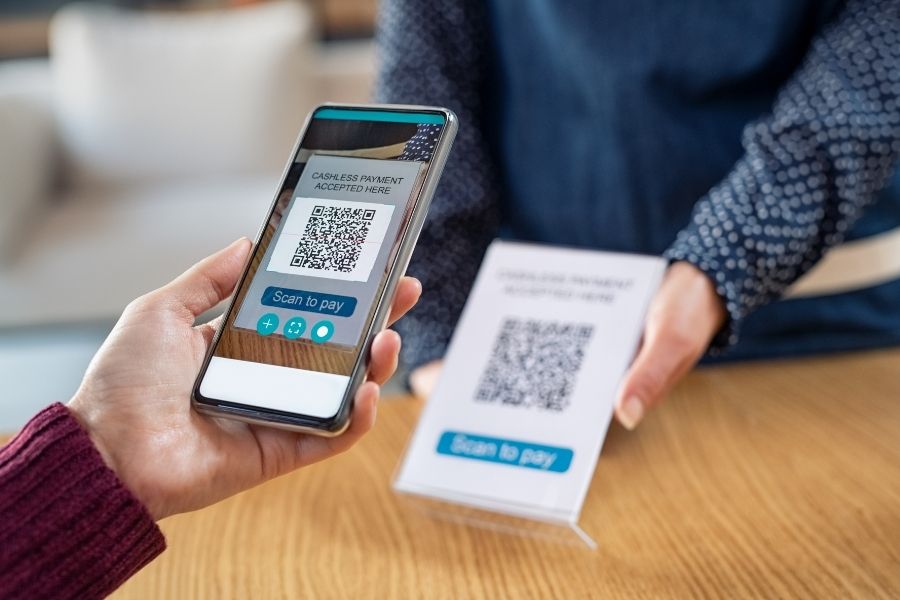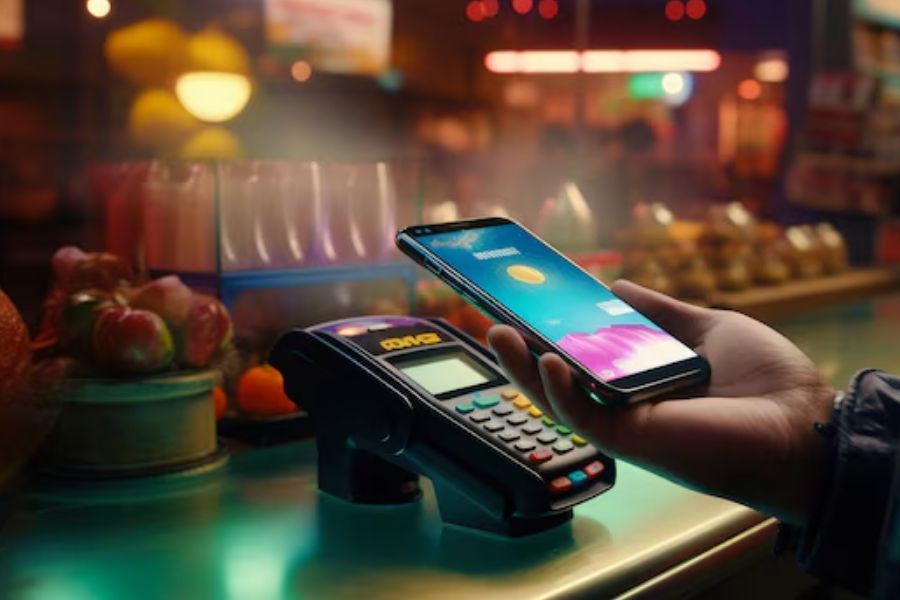In today’s omnichannel retail landscape, customers no longer shop through just one channel. They browse products on their phones, compare prices online, reserve items before visiting stores, and expect seamless experiences across every touchpoint. This shift in behavior has made mobile shop apps a strategic necessity rather than a nice-to-have.
More than just a sales tool, a mobile shopping app helps retailers enhance customer experience, boost purchase frequency, collect valuable user data, and drive revenue across both online and offline channels.
In this article, we’ll break down 8 key benefits of mobile shop apps for omnichannel retailers — and why not having one might mean losing your competitive edge.
What Is a Mobile Shopping App?
A mobile shopping app is a dedicated application installed on a smartphone or tablet that allows customers to browse, purchase, and manage products or services directly from a brand or retailer. Unlike mobile websites, shopping apps offer a faster, more personalized, and more engaging experience, often with additional features such as:
- Saved profiles and payment methods for quick checkout
- Push notifications for promotions, order updates, or restocks
- Loyalty points and membership perks are integrated into the app
- In-store support tools like barcode scanning or click-and-collect
For retailers running an omnichannel strategy, a mobile shopping app becomes a powerful bridge between online and offline sales, helping customers shop anytime while keeping all interactions within one unified ecosystem.
Read More: Best Mobile POS Systems for agile business operations
8 Reasons Every Omnichannel Retailer Needs a Mobile Shopping App
Customer experience improvement
Mobile applications are easy to use and load quickly. Whether in the car, at work, or at a cafe with friends, the consumer can activate the app in a few clicks. This greatly increases the chances of someone purchasing from your e-store. If the app is customized to a certain platform (iOS or Android), it provides clients with a consistent user experience and optimal performance. More potential clients will be attracted to an e-commerce application that is quick to load and easy to use.
A mobile shop app can increase conversion rates
When customers buy a product, they want a smooth transaction, and conversion rates will get better if the deal goes with a mobile app. Despite the fact that mobile shop app deployment might be costly, they are typically capable of matching customer demands and considerably improving revenue.
It is easier for customers to browse when they shop using their own phones, leading to superior chances of seeing what retailers have to offer. The average order value for mobile apps is larger than for mobile browsers and desktop displays combined.
Both online and offline accessibility
Mobile apps can be used in conjunction with or without access to the Internet. This is a huge advantage for any e-commerce business. You can ensure that your consumers always have access to your products and key features in this way. And thousands of merchants have taken advantage of ConnectPOS for its real-time data update between online and offline stores. It also provides the Click and collect feature for the customer. The buyers are able to buy online and pick up in-store, even more, have the chance to use gift cards easily.
►►► Optimal solution set for businesses: Multi store POS, Next-gen POS, Inventory Management Software (MSI), Self Service, Automation, Backorders

Functional phone connection
Mobile applications allow users to take advantage of the phone’s native features, which are not available with mobile webpages. The user experience is enhanced by the use of built-in smartphone components such as GPS and cameras. The app’s distinctive feature is interactive shopping via augmented and virtual reality. Native apps also have the benefit of being able to be utilized offline. Although the applications take up space on the user’s smartphone, they may be used without an internet connection, allowing users to purchase on the move.
Unsurprisingly, customers prefer mobile applications to websites since e-commerce applications are straightforward to use while making purchases. To begin, the buyers don’t need to remember the URL or log into the shop. Furthermore, the apps are more secure and function better than the mobile browser.
Mobile shop app improves brand recognition
One of the most compelling benefits of mobile eCommerce is enhancing brand recognition. Customers spend most of their time on their mobile devices, so businesses can simply engage with them via a mobile eCommerce platform. A brand, on the other hand, must create a fantastic mobile app experience that users like. Additionally, you must reply to every client inquiry to optimize the efficacy of your eCommerce app branding. The more data a company has on its customers, the more effectively it can tackle their problems.
Strengthening marketing communications
It is normal to become excited by sales figures while making a major business decision. To enhance conversions, retailers have relied heavily on direct website navigation. On the other hand, shopkeepers can communicate more effectively with their consumers via a mobile application.
While having a mobile shop app for your eCommerce POS store would almost certainly boost sales, this approach looks to go above and beyond. Mobile apps are a marketer’s dream come true. By refining your marketing operations, you may be able to generate even more money from your current and potential clients.
Without question, push notifications on apps are the best way to communicate with your consumers. This is due to the fact that the user is not obligated to take any action. To reach a customer using social media, you must rely on them to use the platform, see your post or ad, click through to the website, and then convert. There are far too many.
Email correspondence is the same way. To visit your website, a person must first sign up for your emails, read your message, digest the material, and then click a link. Like a text message, a push notification allows a message to display directly on a user’s home screen. When the consumer clicks on the link in the message, they will be sent straight to the app, making it much easier for them to make a purchase.
Enhancing customer loyalty
Mobile application development might help you build customer loyalty. It serves as a constant reminder of your existence, for starters. Every time your customers use their phones, they see your brand and app.
According to a survey from Google, when browsing or purchasing on a smartphone, 50% of smartphone users are more inclined to utilize a company or brand’s mobile shop app because they may earn incentives or points. As a result, retailers need to think about creating a dependable and expandable software package that their customers will like. They’ll then leave positive ratings on Google Play or the App Store, urging others to do the same.
Shopping experience customization
Data collection is an essential component of the digital commerce ecosystem. When a user logs into a digital commerce platform, the system gets access to the user’s purchase history, browsing habits, demographic profiles, and personal preferences, among other things. The capacity to generate individual-level profiles of purchasing behavior will increase significantly as technology progresses, culminating in better, real-time reactions to path-to-purchase adjustments via personalization.
Artificial intelligence (AI) and machine learning (ML) are rapidly changing the retail sector in terms of data mining and personalized experiences. Consumers’ proclivity for intuitive interactions is exploited by these technologies. Smart applications can help retailers customize their items and inventories to change consumer tastes. Furthermore, firms may use contextual marketing techniques that are both relevant and valuable to customers.
Ready to Take Your Omnichannel Retail to the Next Level?
If you’re looking for a powerful and fully customizable mobile shopping experience that connects seamlessly with your in-store and online systems, ConnectPOS is the perfect solution.
With real-time inventory syncing, built-in loyalty, multi-store management, and mobile self-checkout capabilities, ConnectPOS empowers retailers to deliver a unified shopping journey — anytime, anywhere.
👉 Book a free demo with ConnectPOS today and discover how your business can boost sales, improve customer retention, and operate smarter across every channel.
Final Thoughts
Mobile shopping apps are no longer just a trend — they’re a core component of successful omnichannel POS retail strategies. From boosting customer engagement to streamlining checkout and increasing brand loyalty, the benefits are undeniable.
However, to unlock their full potential, retailers need a solution that not only supports mobile commerce but also integrates smoothly with inventory, POS, and in-store operations.
That’s where ConnectPOS comes in.
►►► Optimal solution set for businesses: Shopify POS, Magento POS, BigCommerce POS, WooCommerce POS, NetSuite POS, E-Commerce POS




